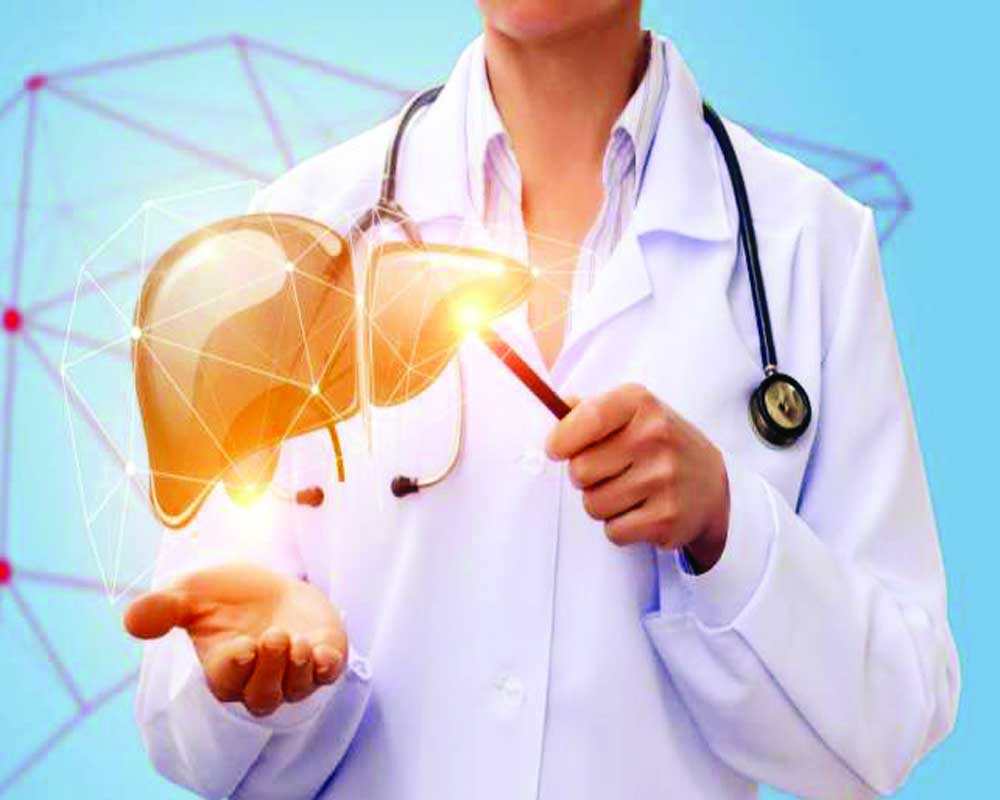Poor lifestyles, unhealthy eating habits and the presence of dangerous pesticides and heavy metals in food are responsible for over-stressing our liver. Specialists shares tips on how to keep it healthy
Hepatitis is a disease caused by viral infections of the liver. It is classified into five major types, namely Hepatitis A, B, C, D and E. All of these different types of virally transmitted hepatitis are caused by different viruses.
The major differences among these types are that Hepatitis A is always an acute, short-term disease, while hepatitis B, C and D are most likely to become ongoing and chronic. Hepatitis E is usually harmless and acute but it can get particularly dangerous in pregnant women.
- Hepatitis A: The hepatitis A virus (HAV) is mainly responsible for causing Hepatitis A. It is contagious and commonly gets transmitted by consuming food or water contaminated by feces from a person infected with hepatitis A.
Treatment: Does not require treatment. Bed rest is recommended in case of too much discomfort.
- Hepatitis B: This type of hepatitis gets transmitted through contact with infectious body fluids of any kind.
Treatment: Does not require specific treatment if it is acute. Antiviral medications are used for the treatment of chronic hepatitis B.
- Hepatitis C: Hepatitis C virus is mainly responsible for this disease and it is transmitted through direct contact with infected body fluids, commonly through injection drug use and sexual contact.
Treatment: Both acute and chronic hepatitis C is treated with antiviral medications. People with chronic hepatitis C are commonly treated with a combination of antiviral drug therapies.
- Hepatitis D: Hepatitis D is a serious liver disease caused by the hepatitis D virus (HDV) that gets contracted through direct contact with infected blood. It is a rather rare form of hepatitis that only occurs in conjunction with hepatitis B infection.
Treatment: Vaccinations for hepatitis B is usually used to prevent and treat Hepatitis D. Hepatitis D can be prevented by getting the vaccination for hepatitis B, as infection with hepatitis B is responsible for the development of hepatitis D.
- Hepatitis E: A waterborne disease, Hepatitis E is caused by the hepatitis E virus (HEV). It practically occurs due to the consumption of unhygienic and contaminated food and water. It occurs mainly in areas with poor sanitation.
Treatment: There are no specific medical therapies available to treat Hepatitis E. It is often an acute infection and typically resolves on its own, except when it involves pregnant women, then it gets dangerous.
Treatment
The chronic infection and inflammation result in extensive scarring of the liver (cirrhosis), which will impair the functions of the organ. Diagnosing and detecting the infection at the right time is essential. Spotting the symptoms, you need to diagnose the condition to learn the type and severity of the condition. Conducting laboratory tests, the doctor or certified medical practitioner will find the type and severity. The normal ways of diagnosing the condition include blood tests, liver biopsy, nucleic acid tests, paracentesis, surrogate markers and elastography. The type of treatment largely depends on the diagnosis report.
Acute Hepatitis infection will resolve on their own, which might take several weeks or months. However, the chronic condition will require treatment of antiviral medication. Though there is no particular treatment for the disease, supportive therapy and medication will improve the comfort levels and prevent the complication associated with the disease.
Self-care is essential for treatment as well as prevention of Hepatitis.
- A patient must take plenty of rest.
- Staying hydrated is the key to minimise the symptoms and effects.
- The person infected with the virus must also eat a balanced and nutritious diet. Including high-calorie food in the diet chart is essential for persons having a poor appetite.
- Avoiding alcohol is essential to protect the liver.
The writer is Dr Ajay Kumar, Chairman & HOD, Institute for Digestive & Liver Diseases, BLK Super Speciality Hospital


























